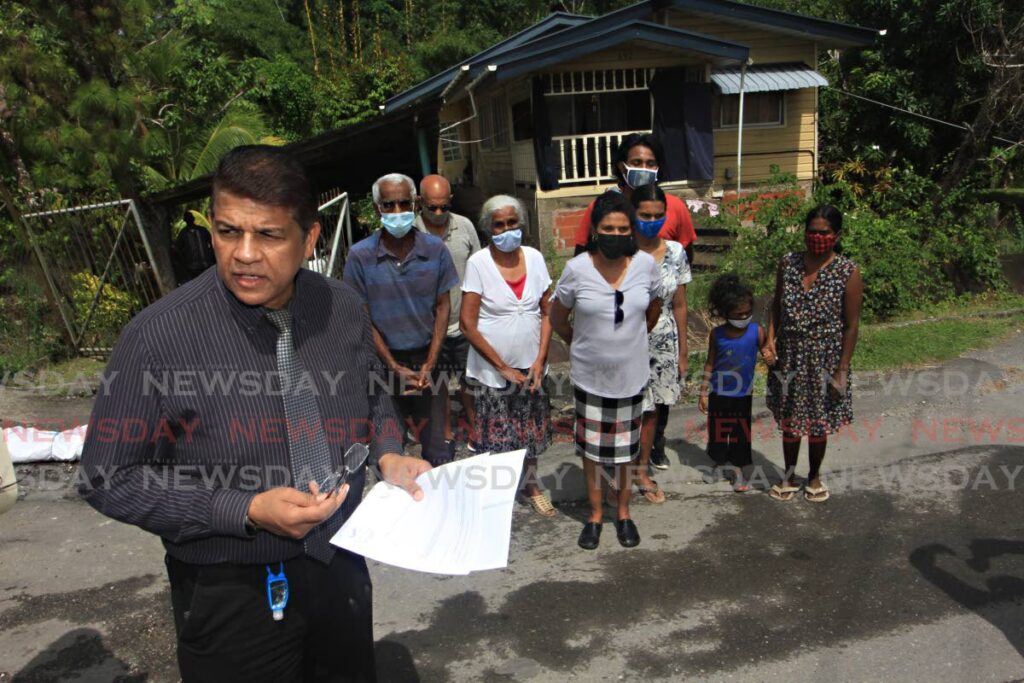Social injustice on the poor

Last week attorney Prakash Ramadhar made a public statement which drew my attention to the role of law and social justice.
He said that whatever a government is responsible for maintaining, they should fix it when required. Related to such obligation is the other comment that any drain which collects rushing water from one public road, then drains this water across to another public road, should be maintained and repaired by government.
Lawyers with Ramadhar’s perspective on the poor and disadvantaged are needed at this time. Pro bono or at minimal fees, they should be able to apply their intellectual capability to reveal the true intent of the law, while judges should be able to apply a wisdom above the restricted law.
This is how social justice for poor, disadvantaged citizens is squeezed out, especially facing repeated postponements. I recall a Chinese proverb: “If a piece of paper gets blown into the court, it would take ten oxen to pull it out.”
Generally, the widespread protracted problems arising from neglect by government agencies, particularly our regional corporations, affect the poor more than any other group.
For such poor people, seeking justice becomes an economic challenge too. Notably, over time the collapse of roads, drains and bridges has regrettably led to tyre-burning and road blockades, drawing police into citizen confrontation: the genesis of civil disorder.
And as Mr Ramadhar pointed out, when government agencies refuse to make required repairs, citizens are expensively compelled to take their grievances to court. This then becomes a David and Goliath battle, quite often at taxpayers’ expense.
How would local government reform solve this? Rather than inspiring grassroots democracy, regional corporations, for several reasons, stifle citizens’ rights. The courts should come to the rescue.
If Local Government Minister Faris Al-Rawi or Housing Minister Camille Robinson-Regis are serious about local government efficiency and reform, they should do a survey to see how many such court matters exist within regional corporations, and how government intends to deal with them. Will collection of taxes, spending and full-time councillors really solve the widespread infrastructural problems facing citizens? Mr Al-Rawi should show more proof.

It is well known how difficult it is for the poor to beat City Hall. So when Mr Al-Rawi called upon citizens last week to “demand that their local government representatives get on with the business of representing people,” he should know by now how stubborn Goliath uses its power and the law against the poor.
Hence, it is often necessary for the court to examine the true intent of the law beyond the letter so as to help secure social justice for the poor.
Every intent cannot be written into a law. We assume the overall intent of a law is to obtain justice, so in the struggle between interpretations, where there is a balance of probability, it should be in favour of the distressed and financially disadvantaged.
From east, west, north and especially south, citizens express frustration and anger against infrastructural collapse worsened by the apparent “deaf and dumb” stance taken by regional corporations and other agencies. Given the available grants and income surplus, the excuse of “no money” has grown uncaring and even boring. It is now a matter of widespread social injustice against the poor – UNC or PNM.
The Municipal Corporations Act allows the Ministry of Local Government and, the Ministry of Works (as admitted by Works Minister Rohan Sinanan) to go to the assistance of regional corporations when help is needed.
This hasn’t really happened. As an attorney, Mr Al-Rawi should do some conscientious introspection and respond to frustrated citizens much better than his predecessors.
Last week, too, Justice Frank Seepersad felt obliged to declare: "We are approaching our 60th anniversary of Independence and if there is a level of institutional dysfunction then it is cause for us to reassess where we are and to comprehensively review and implement proper and modern processes to ensure that all arms of the state are interlinked.”
Given the evidence, it is not likely that the proposed local government reforms will accomplish this.
Furthermore, as attorney Ramadhar added, “The state should be held to the highest standard of ethics and honour instead of deciding to hire lawyers.”
Quite often, such "advantageous" government action imposes social injustice upon the poor.

Comments
"Social injustice on the poor"